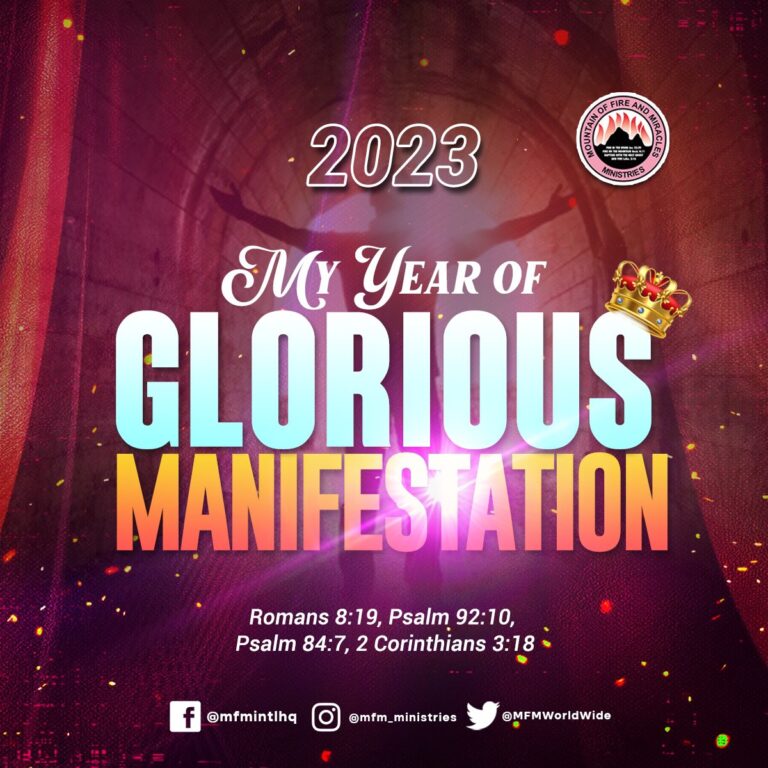In the Ordinances the Power of Godliness is Manifest: Divine Grace
The ordinances demonstrate the power of godliness. Through these sacred rituals, believers manifest their commitment to living a godly life.
Embracing the ordinances is a powerful expression of faith and devotion to the divine. In this blog post, we will explore the significance of the ordinances in showcasing the power of godliness. By delving into the spiritual and practical aspects of these ceremonies, we will uncover their profound impact on the lives of believers.
Understanding the transformative nature of these ordinances provides valuable insights into the essence of godliness and its manifestation in the lives of individuals. Join us as we delve into this enlightening exploration of the power of godliness in the ordinances.
Exploring The Concept Of Ordinances
Historical roots of religious ordinances: Religious ordinances have deep historical roots, dating back to ancient civilizations. They have played a significant role in various religious traditions and have been a means of expressing faith and devotion.
Varieties of ordinances across faiths: Different faiths have their own unique varieties of ordinances, each with its own significance and practices. From baptism in Christianity to the five pillars of Islam, these ordinances hold great importance in the spiritual lives of believers.
The Intersection Of Grace And Ritual
In the ordinances of the Church, we witness the manifestation of the power of godliness. The intersection of grace and ritual is a sacred space where divine blessings are bestowed upon us. Through the ordinances, we are able to access and partake in the abundant grace that God offers us.
Ordinances serve as conduits of divine grace, acting as channels through which the blessings of the Atonement are made available to us. As we exercise faith and participate in these sacred rituals, we open ourselves to the transformative power of God’s love and mercy.
Our faith plays a crucial role in accessing grace through ordinances. It is through our belief and trust in the Lord that we are able to fully receive the blessings associated with these sacred acts. As we approach the ordinances with sincere hearts and a steadfast faith, we invite the enabling power of the Atonement into our lives.
The Power Of Godliness Revealed
Godliness refers to the quality of being devoutly religious or pious. It involves living a life that is dedicated to serving and pleasing God. This is achieved by practicing various religious ordinances that help manifest the power of godliness in our lives.
| Ordinance | Manifestation of Godliness |
|---|---|
| Baptism | Symbolizes the death and resurrection of Jesus Christ and our commitment to follow Him. |
| Communion | Reminds us of the sacrifice of Jesus Christ and our need for His atonement in our lives. |
| Prayer | Allows us to communicate with God and seek His guidance and blessings in our lives. |
| Fasting | Helps us to humble ourselves before God and seek His will in our lives. |
| Scripture Study | Enables us to learn about God’s plan for us and how to live a godly life. |
Personal Transformation Through Ordinances
Testimonies of change:
- Increased faith
- Strengthened relationships
- Improved self-worth
- Renewed purpose
Ordinances have profound psychological and spiritual impacts on individuals. They have the power to shape and mold our character, leading to personal transformation. Through these sacred rituals, individuals are able to experience a deepened sense of faith and connection with a higher power. The act of participating in ordinances also fosters stronger relationships with loved ones and the community, creating a support system that encourages growth and accountability. Moreover, undergoing these rituals can have a profound impact on an individual’s self-worth, instilling a sense of value and purpose. The ordinances serve as a reminder of one’s divine nature and potential, empowering individuals to strive for greater righteousness and live a life guided by the power of godliness.
Community And Communal Worship
In the Ordinances, the power of godliness is manifest through community and communal worship. The ordinances serve as a collective experience, strengthening communal bonds through shared rituals. These rituals bring people together in a common purpose, fostering a sense of belonging and unity. By participating in ordinances such as baptism or the sacrament, individuals not only demonstrate their commitment to their faith but also forge connections with others who share their beliefs. Through these acts of worship, the power of God is made tangible and accessible to all members of the community. It is in these shared experiences that the true power and significance of the ordinances are revealed, allowing individuals to deepen their relationship with God and each other.
Contemporary Practice And Perception
Ordinances have been a significant component of religious practices for centuries. In today’s society, contemporary practice and perception of these ancient rites have evolved. Modern interpretations of ordinances have shifted the focus from the ceremony to its symbolic meaning. The power of godliness is manifest in the way individuals internalize and apply these symbols to their daily lives. The role of ordinances has become more personal and individualized, allowing individuals to connect with their beliefs in a more meaningful way. The use of technology has also impacted the way ordinances are performed and accessed, making them more accessible to individuals around the world. As the world changes, so do the practices and perceptions of ordinances, but their significance remains unchanged.
Challenges And Criticisms
|
Common misconceptions: Some mistakenly view religious ordinances as ritualistic and devoid of meaning. |
Responding to critiques: Understanding the spiritual significance behind these practices can address criticisms. |
Integrating Ordinances Into Daily Life
Embrace tradition while adapting to modern routines. Find balance in incorporating rituals into everyday activities. Establish regular practices that promote spiritual growth. Integrate prayer and meditation into your daily schedule. Seek community support for accountability and encouragement. Prioritize reflection and self-care to nurture inner peace. Stay consistent in your commitment to faith practices. Remain open to new ways of connecting with the divine. Remember, small actions can lead to profound spiritual transformation.
Conclusion
In the ordinances, we witness the power of godliness at work, transforming lives and bringing individuals closer to their spiritual journey. Through these sacred rituals, believers can experience a deeper connection with their faith and a sense of divine presence in their lives.
As we embrace these ordinances, we open ourselves to the profound blessings and guidance that come from a life of godliness.





